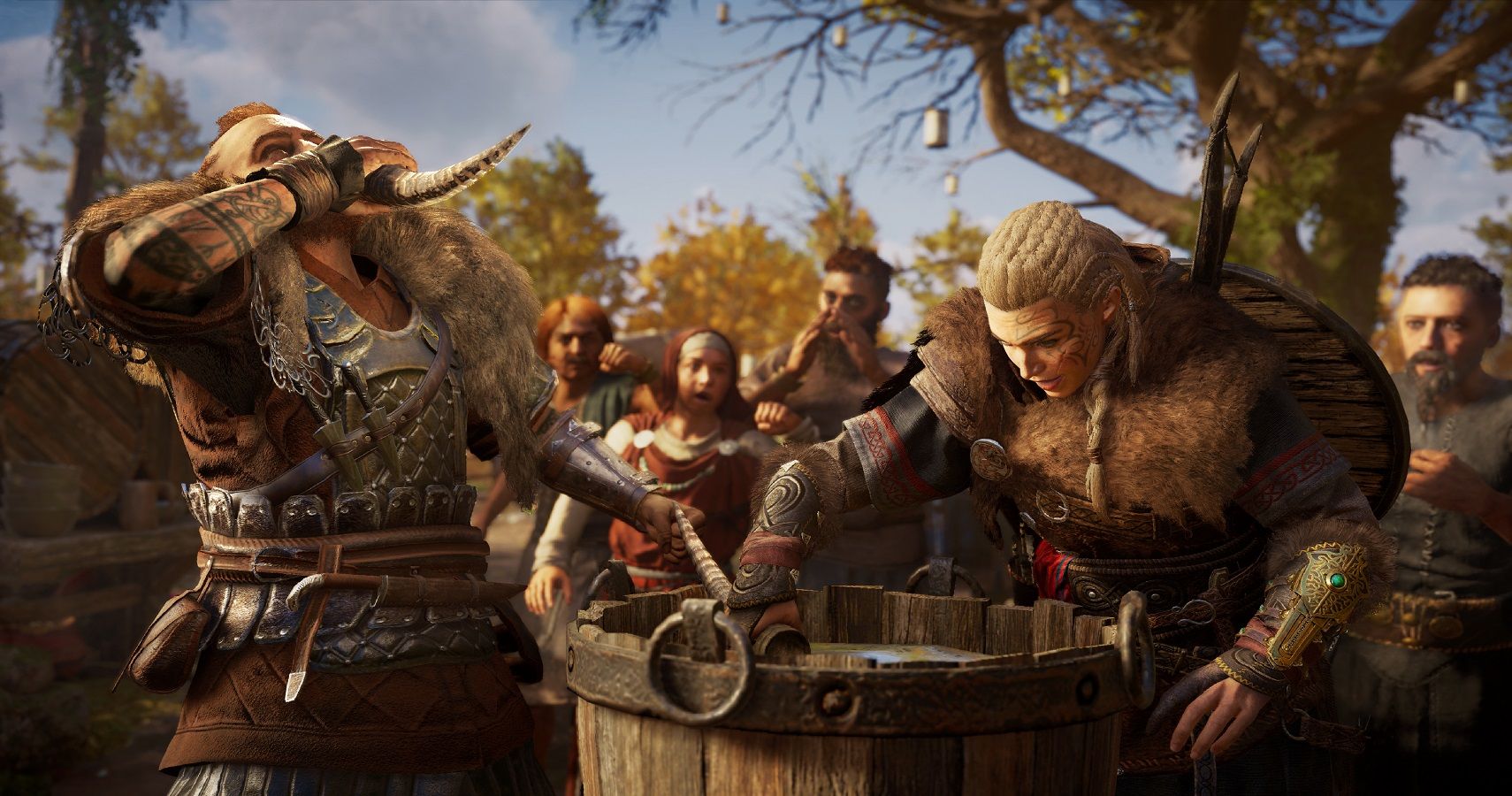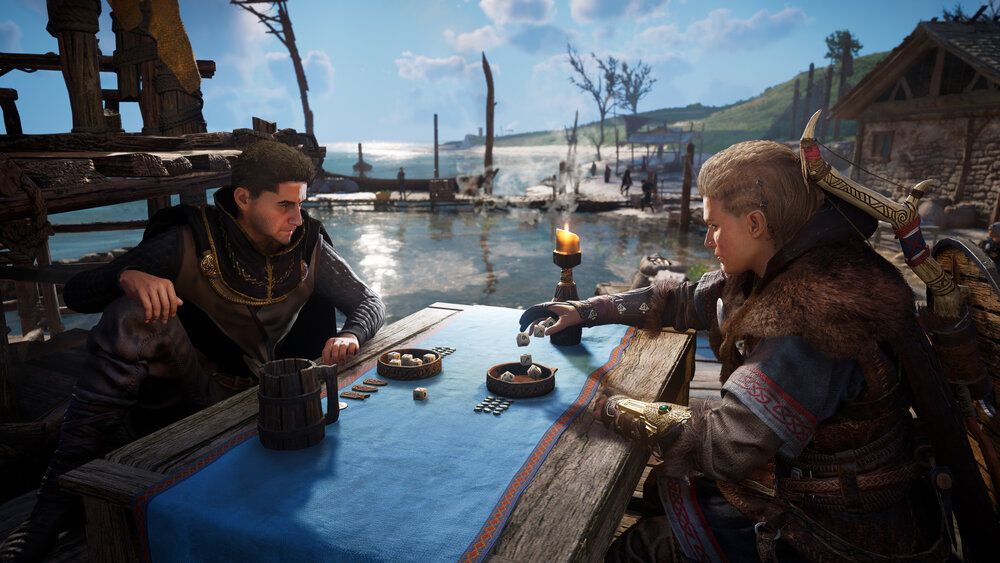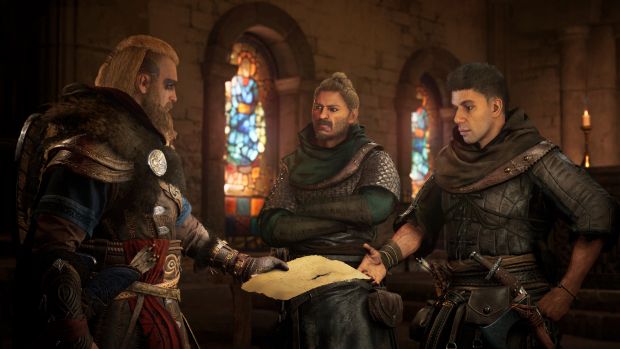The change from side quests in Assassin’s Creed Odyssey to Assassin’s Creed Valhalla has been drastic. While Odyssey was rich with what we might consider to be “normal” side quests, Valhalla has not only greatly decreased the number of side quests available, but they’re structured a bit differently too. In Valhalla, the side quests aren’t necessarily full, separate adventures, but rather random, quick encounters.
There has been a lot of debate about whether or not this was a good move from Ubisoft. While the quests in Odyssey were more involved and were more story-based, many people complained that there were too many side quests, which made the world feel much too bloated. Ubisoft seemed to listen to this feedback and lessened the number of side quests in Valhalla, but they also changed the structure of the quests.
For example, a side quest in Valhalla involves a farmer who has a rat problem. He asks you for help, so you go to the neighbor and learn she has a lot of cats. All you must do is convince her to let them roam free, and the farmer’s rat problem is solved. This does not provide any interesting story on its own, as most of the side quests do not. In fact, some players go as far as to say these aren’t side quests at all—just irritating encounters.
The richness of Odyssey’s side quests caused many to become invested in the game in a way that they’re now struggling to do with Valhalla. The experience of being able to take a break from the main quest and delve into new stories and different mysteries is almost entirely absent. The most involved “side quests” in Valhalla are ones like the Asgard Mysteries, which many will argue is actually just a branch of the main quest.
Should the next Assassin’s Creed game bring back the classic side quests? Fans remain divided. Though many have complained about the simplicity of Valhalla’s random encounters, others have found this to be extremely refreshing in comparison. These “side quests” have been compared to the way that random encounters happen in Red Dead Redemption 2. Yes, they’re smaller, but they provide a more immersive feel in the world. To put it another way, you must actually listen to what the NPCs are saying in order to complete the tasks. There aren’t usually quest logs and markers—it’s more realistic. Having the random encounters structured this way makes the world feel more “lived in” for many players.
It’s also true that a general complaint for many games, not just Assassin’s Creed, has been that there’s too much handholding. Considering that everything was always marked in Odyssey, nothing was too difficult to figure out. In this way, Valhalla has made a drastic improvement.
However, it’s worth it to consider how this might impact replayability. While in games like The Witcher 3, you can probably go back and play side quests that you missed the first time (thus experiencing new content), that aspect wouldn’t be there as much when starting over Valhalla. That being said, the case could be made that there might not be a need to replay Valhalla at all—that playing through the first time was rich enough an experience and immersive enough on its own.
It seems that this really just comes down to personal preference. Personally, I fall into the camp that desires separate stories and more involved content, but I can also wrap my head around the fact that hand-holding gets old. Ideally, it would be great if the next Assassin’s Creed game could have more of a combo of side quests and random encounters. Considering both bring a lot to the table to enhance a game, including both (while avoiding overdoing it with either) could improve upon both Odyssey and Valhalla moving forward.



